No Deku, no Bakugo, no problen.
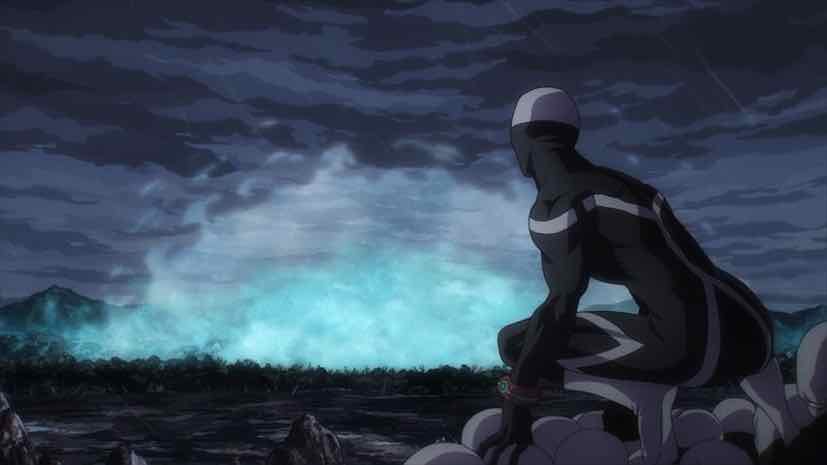 Boku no Hero Academia keeps rolling along, delivering the goods week after week in a season mostly devoid of its main protagonist. And often its main villains, too. This was a quieter episode than last week’s epic blockbuster, one of the biggest and most spectacular of the entire series. But it was immensely effective on multiple fronts. It does annoy me at times that the girls always seem to get paired off with the girls on the opposing side, but at least the likes of Uraraka get a chance to shine.
Boku no Hero Academia keeps rolling along, delivering the goods week after week in a season mostly devoid of its main protagonist. And often its main villains, too. This was a quieter episode than last week’s epic blockbuster, one of the biggest and most spectacular of the entire series. But it was immensely effective on multiple fronts. It does annoy me at times that the girls always seem to get paired off with the girls on the opposing side, but at least the likes of Uraraka get a chance to shine.
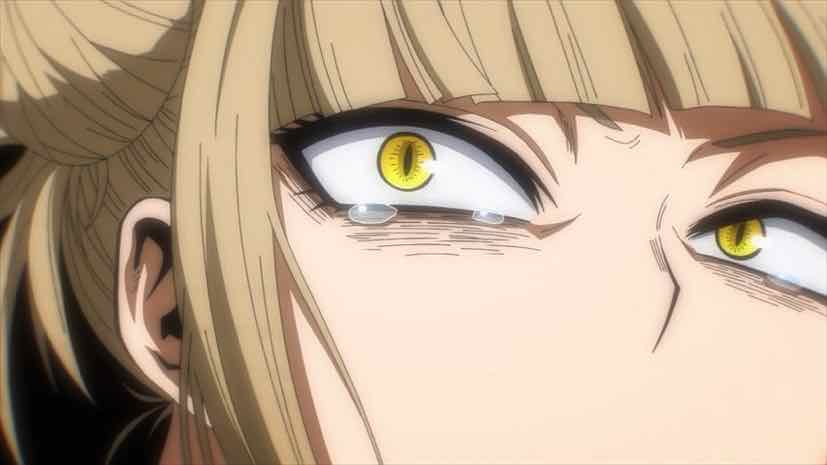 In a lot of ways, though, this ep was as much about Bubaigawara Jin as anybody. Twice was someone I just had a feeling was going to be really important from the moment he was introduced, seemingly as a minor side player. But he got a brilliant standalone intro (Season 3 Episode 24, which makes a fascinating rewatch given events this week), quietly one of my favorite scenes in the entire series. His influence on the story far outlived the character himself, largely because his influence on Toga Himiko was so profound. And because in Boku no Hero Academia events – and the lives people lead – have consequences.
In a lot of ways, though, this ep was as much about Bubaigawara Jin as anybody. Twice was someone I just had a feeling was going to be really important from the moment he was introduced, seemingly as a minor side player. But he got a brilliant standalone intro (Season 3 Episode 24, which makes a fascinating rewatch given events this week), quietly one of my favorite scenes in the entire series. His influence on the story far outlived the character himself, largely because his influence on Toga Himiko was so profound. And because in Boku no Hero Academia events – and the lives people lead – have consequences.
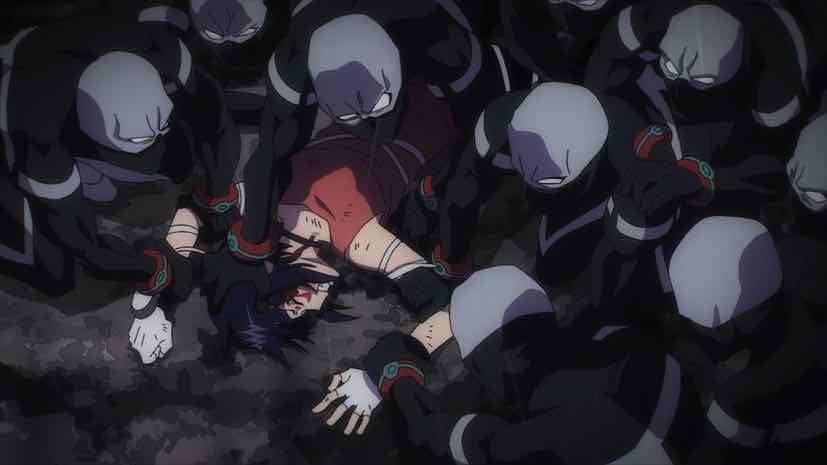 So much of what’s happened in this huge final arc, in fact, is a direct result of Hawks killing Jin during that undercover mission at Gunga Villa. I don’t really blame Hawks per se. He’s something of a victim of his own talent – he was asked to perform a really thankless mission because he was the only one with a decent chance of pulling it off. And to do so he had to do things he would rather not have done, killing Twice most prominently. Hawks is no fool – he recognized that there was good in this unhappy man. Twice really craved acceptance and companionship more than anything else, and Hawks pretended to give it to him. What he ended up doing was really despicable if we’re honest, even if one could argue he had little choice.
So much of what’s happened in this huge final arc, in fact, is a direct result of Hawks killing Jin during that undercover mission at Gunga Villa. I don’t really blame Hawks per se. He’s something of a victim of his own talent – he was asked to perform a really thankless mission because he was the only one with a decent chance of pulling it off. And to do so he had to do things he would rather not have done, killing Twice most prominently. Hawks is no fool – he recognized that there was good in this unhappy man. Twice really craved acceptance and companionship more than anything else, and Hawks pretended to give it to him. What he ended up doing was really despicable if we’re honest, even if one could argue he had little choice.
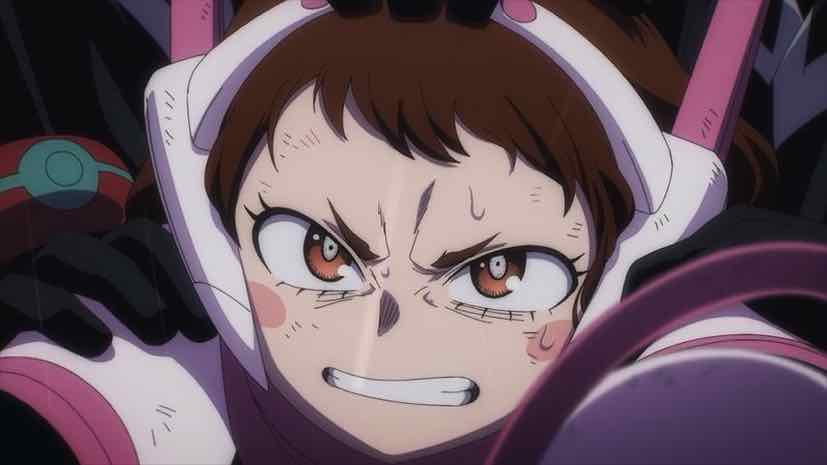 That act changed Toga pretty profoundly. She’s another one spit out as a reject by hero society, winding up with the League of Villains for largely the same reasons Jin did. No doubt about it, she loved Twice – loved him more than anyone else, in fact. She saw him as a kindred spirit, a comrade in the march of the outcasts. They were alone together, as it were. This whole affair has been existentially brutal on Toga, because she knows that whatever else happens, it ends with her having to say goodbye to Jin forever. Because of his quirk and hers, in a way he was always by her side even after Hawks took him from her. But because of her actions here, that’s all about to end.
That act changed Toga pretty profoundly. She’s another one spit out as a reject by hero society, winding up with the League of Villains for largely the same reasons Jin did. No doubt about it, she loved Twice – loved him more than anyone else, in fact. She saw him as a kindred spirit, a comrade in the march of the outcasts. They were alone together, as it were. This whole affair has been existentially brutal on Toga, because she knows that whatever else happens, it ends with her having to say goodbye to Jin forever. Because of his quirk and hers, in a way he was always by her side even after Hawks took him from her. But because of her actions here, that’s all about to end.
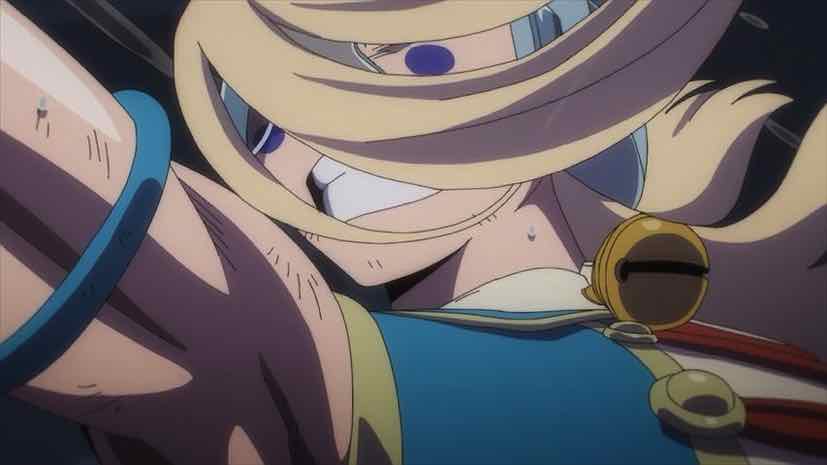 Uraraka and her unwillingness to write Toga off is an obvious parallel with Izuku and Shigaraki. If this society sometimes blurs the lines between heroes and villains, it blurs the line between victims and villains too. Sometimes it’s clear-cut, but often not – and in the case of someone like Toga (and Shigaraki) she’s clearly both. The way she was ostracized and deplored as a child – even by her parents – clearly drove her to a life of villainy. But that was the only outlet she had, really. It’s the same with Dabi, actually, and Jin too for that matter. They ended up where they did because society left them no other options except being alone.
Uraraka and her unwillingness to write Toga off is an obvious parallel with Izuku and Shigaraki. If this society sometimes blurs the lines between heroes and villains, it blurs the line between victims and villains too. Sometimes it’s clear-cut, but often not – and in the case of someone like Toga (and Shigaraki) she’s clearly both. The way she was ostracized and deplored as a child – even by her parents – clearly drove her to a life of villainy. But that was the only outlet she had, really. It’s the same with Dabi, actually, and Jin too for that matter. They ended up where they did because society left them no other options except being alone.
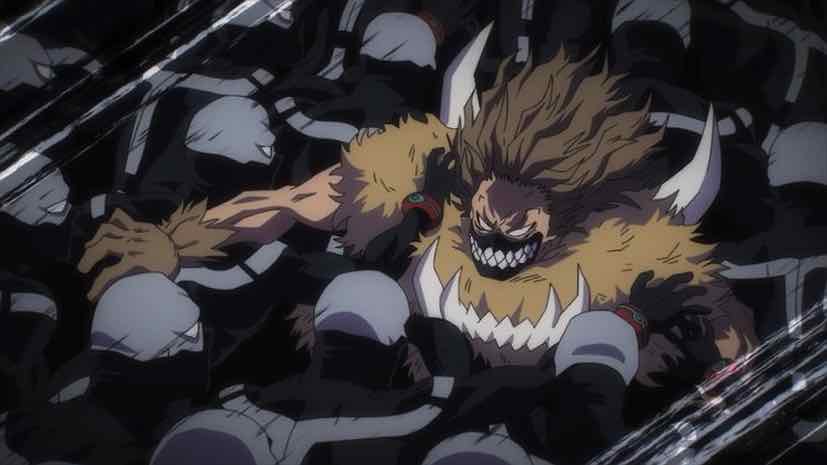 That conversation among the League about villain names was a flashback to happier times. It was a reminder of what brought them all together, and of how before All For One warped them into something altogether different they were almost sympathetic. Also interesting was Ochaco’s comment about how she used to think that the difference between heroes and villains was following the rules – a dangerous and naive point of view for anyone. And patently false. Ochaco may see Toga as something more than the things she’s done – but she’s still done those things. And if a society is to function, someone who does those things has to pay a price.
That conversation among the League about villain names was a flashback to happier times. It was a reminder of what brought them all together, and of how before All For One warped them into something altogether different they were almost sympathetic. Also interesting was Ochaco’s comment about how she used to think that the difference between heroes and villains was following the rules – a dangerous and naive point of view for anyone. And patently false. Ochaco may see Toga as something more than the things she’s done – but she’s still done those things. And if a society is to function, someone who does those things has to pay a price.
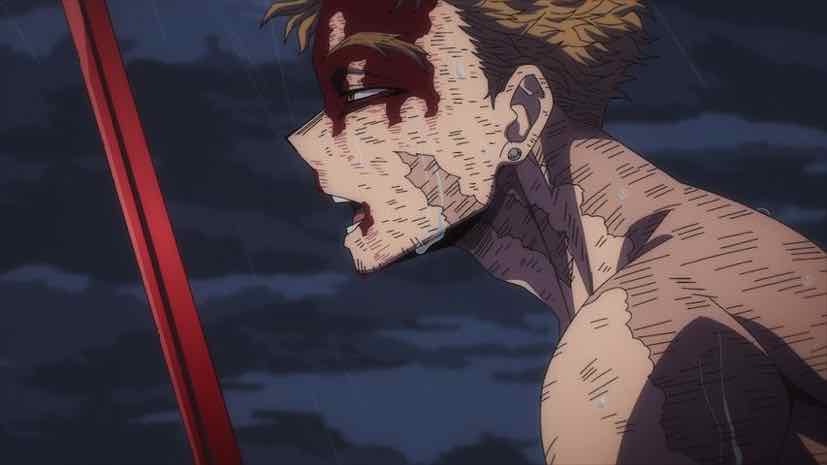 So really, in the end, this was going to end in tears – much like the saga of the Todoroki family. Horikoshi doesn’t shoehorn happy endings onto stories where they don’t fit. A cynic might argue that Uraraka is doing all this to make herself feel better, not Himiko. But she’s a child, and one could easily argue that’s why most people do nice things. Maybe the two girls did connect in the end, but in truth Toga (who stabbed her with extreme prejudice) wasn’t dissuaded of anything by Uraraka, really. It’s just that “Zero Gravity” has grown up along with its wielder, and Toga’s unique quirk usage made it an especially effective countermeasure. Ochaco did what she had to do, that’s all – but did it with mercy in her heart, like the genuinely good person she is.
So really, in the end, this was going to end in tears – much like the saga of the Todoroki family. Horikoshi doesn’t shoehorn happy endings onto stories where they don’t fit. A cynic might argue that Uraraka is doing all this to make herself feel better, not Himiko. But she’s a child, and one could easily argue that’s why most people do nice things. Maybe the two girls did connect in the end, but in truth Toga (who stabbed her with extreme prejudice) wasn’t dissuaded of anything by Uraraka, really. It’s just that “Zero Gravity” has grown up along with its wielder, and Toga’s unique quirk usage made it an especially effective countermeasure. Ochaco did what she had to do, that’s all – but did it with mercy in her heart, like the genuinely good person she is.


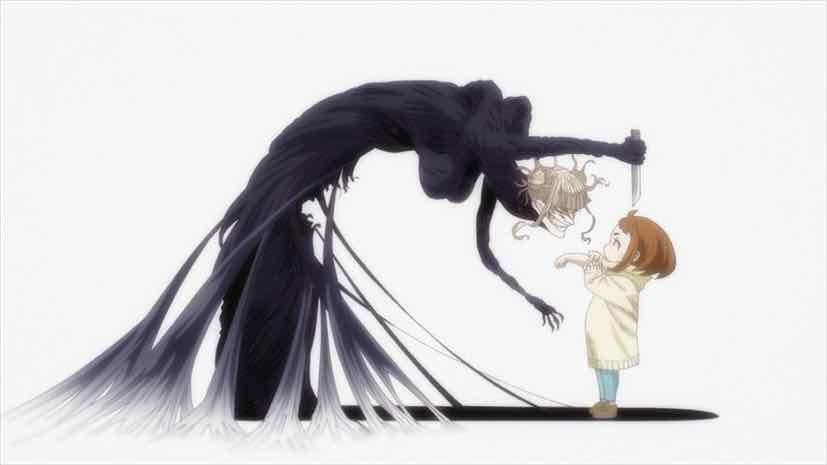
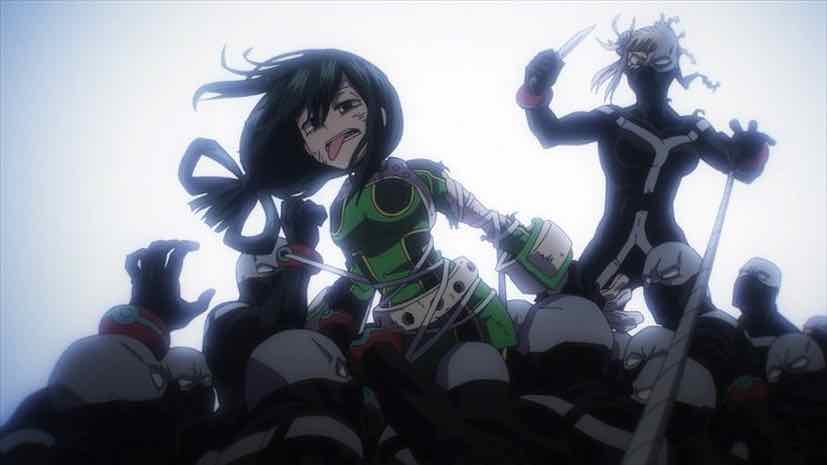
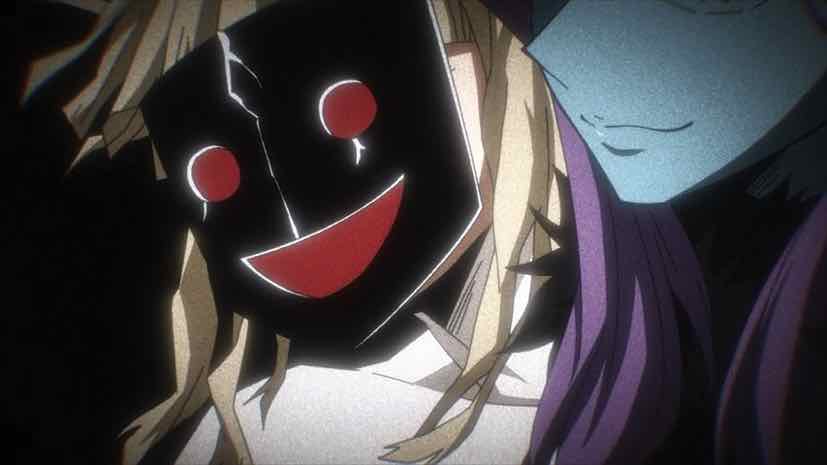
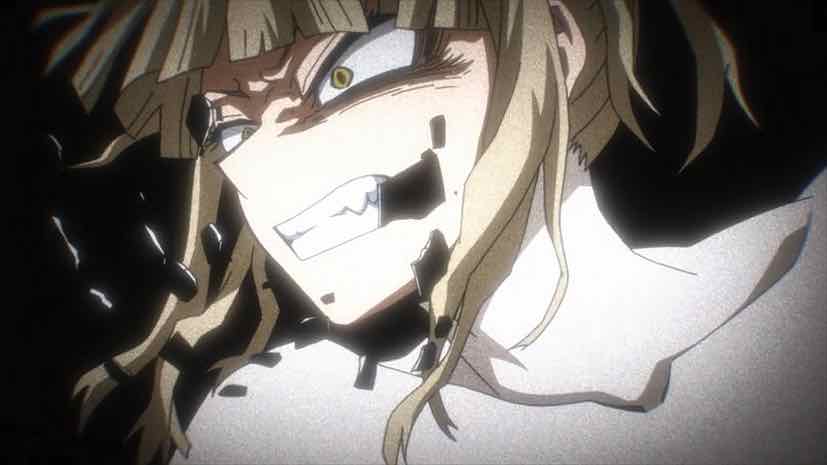
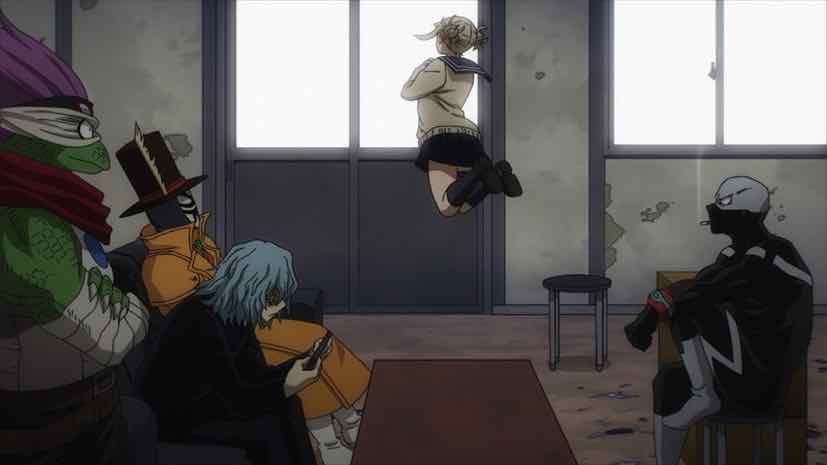
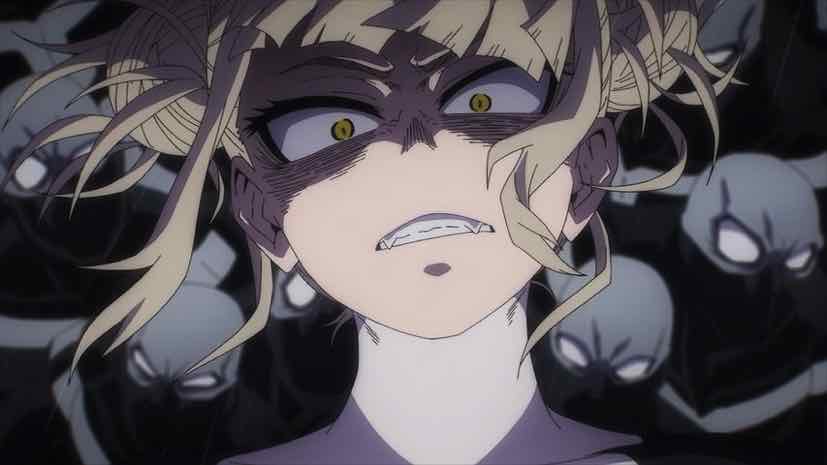
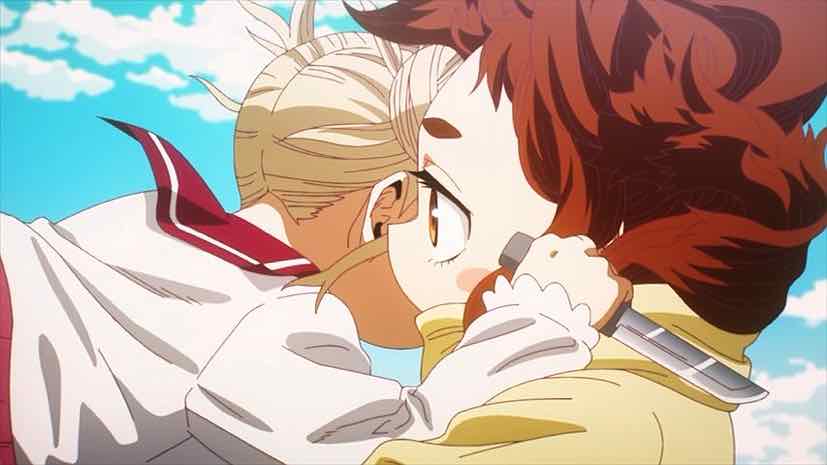
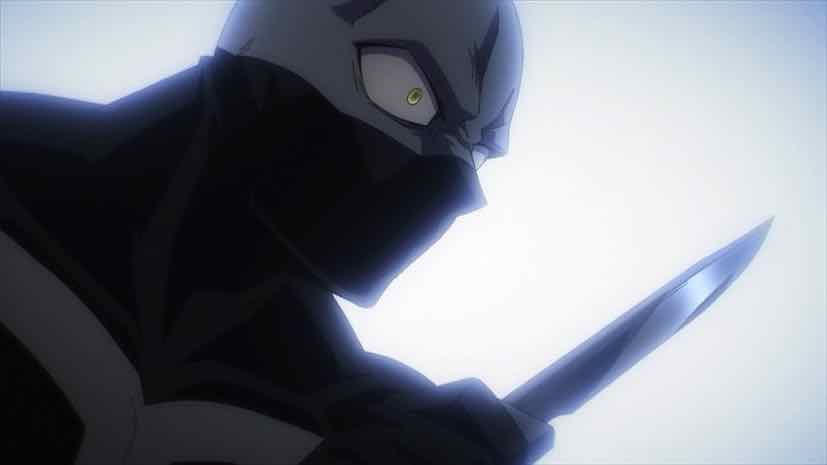
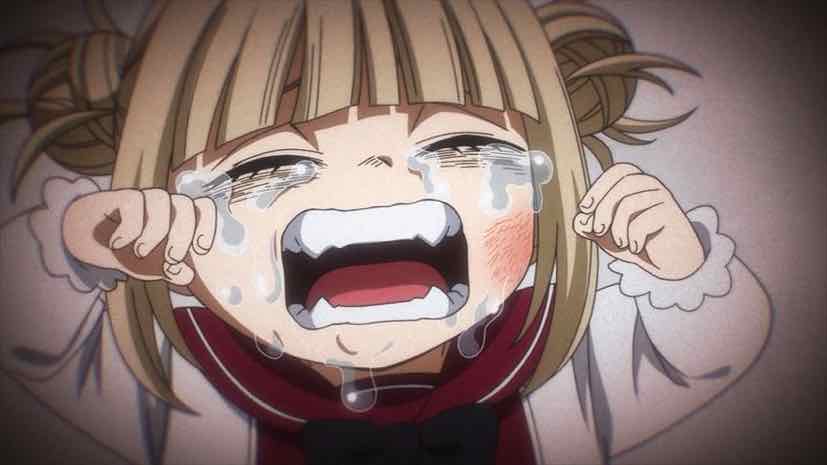
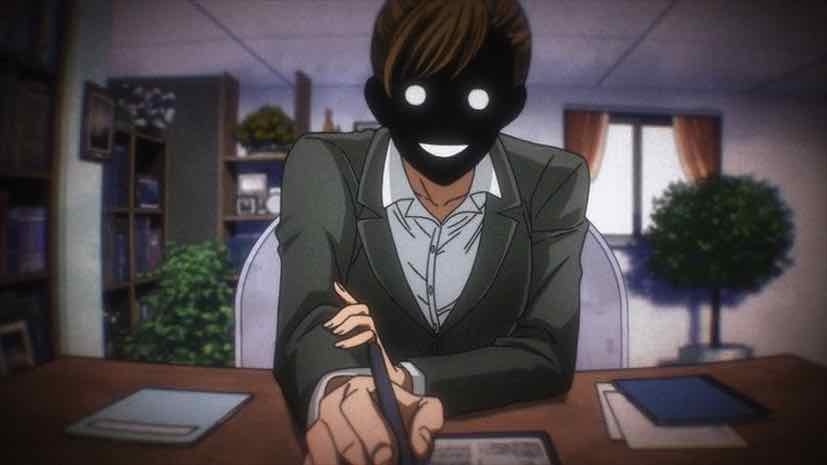
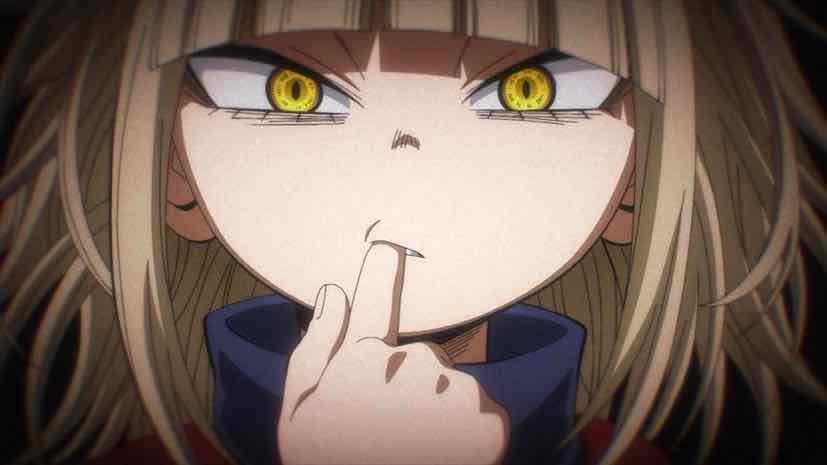
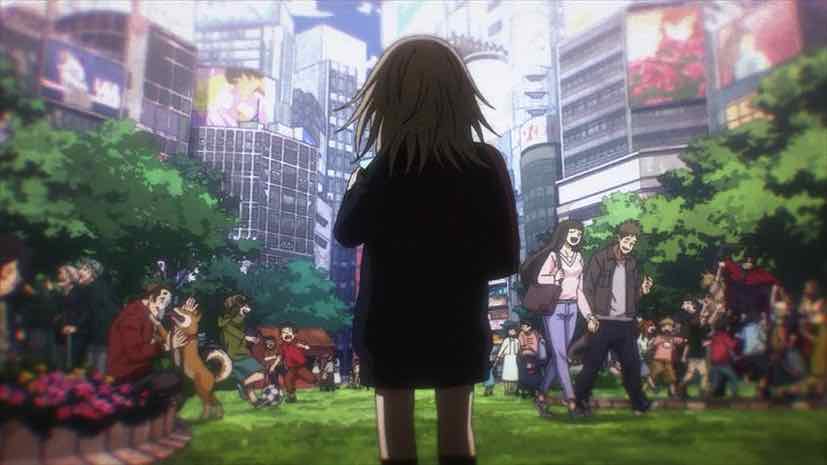
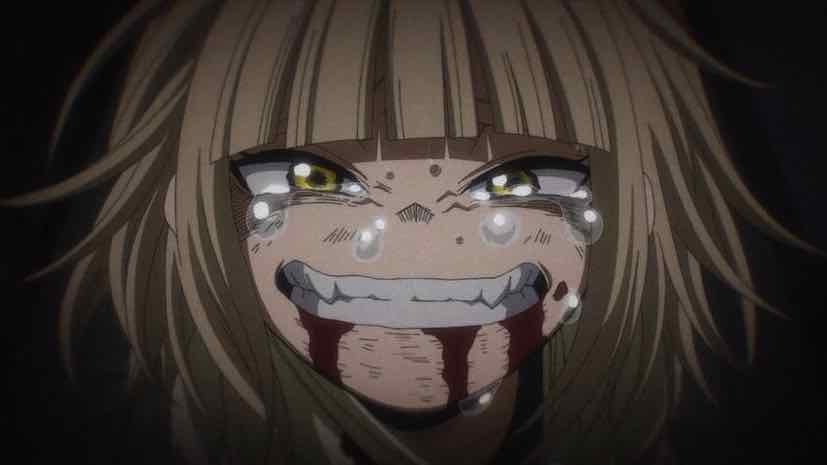
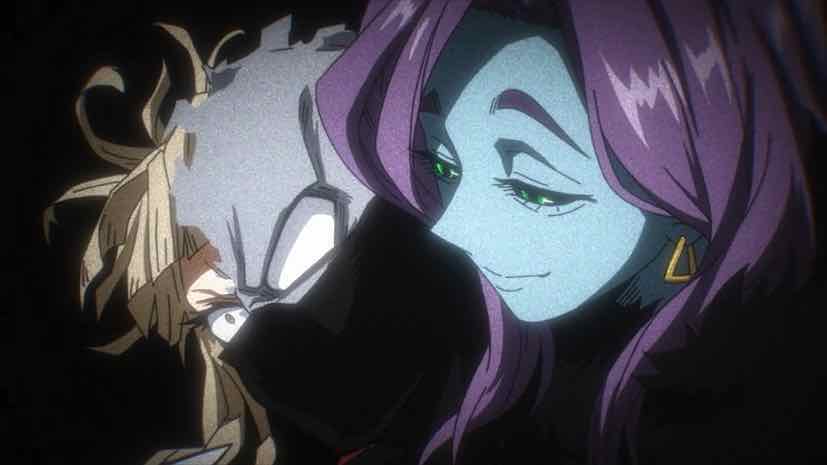
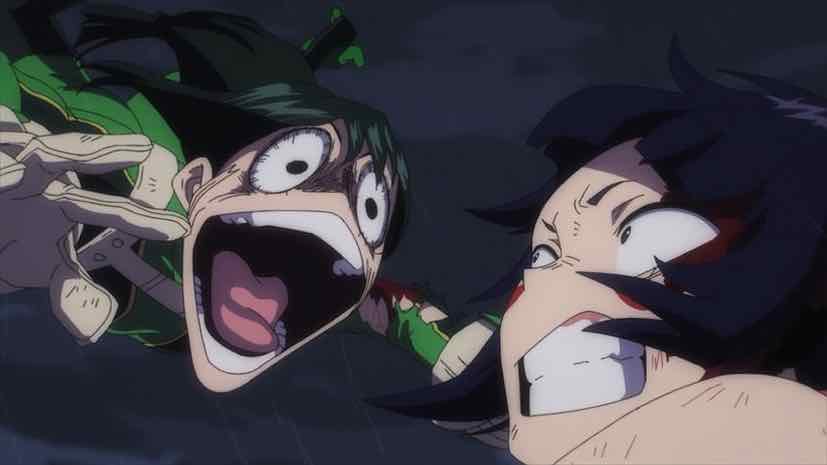
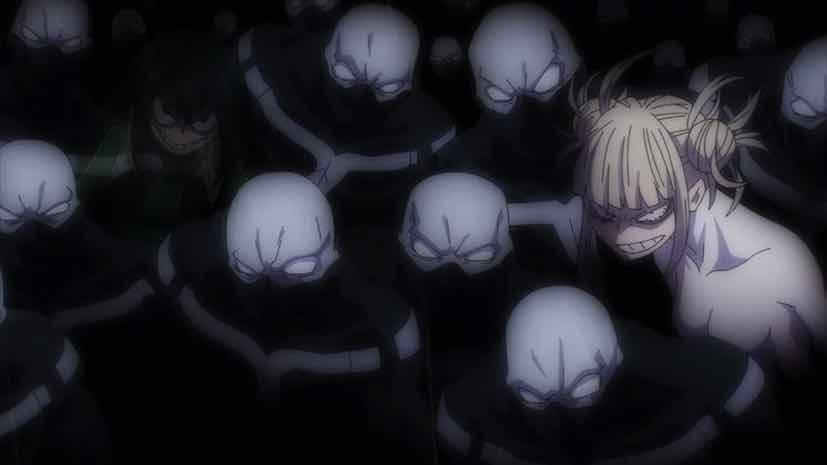
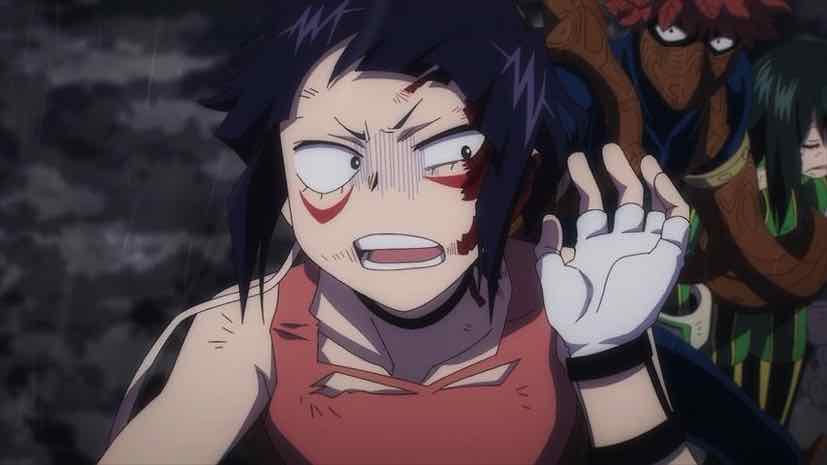
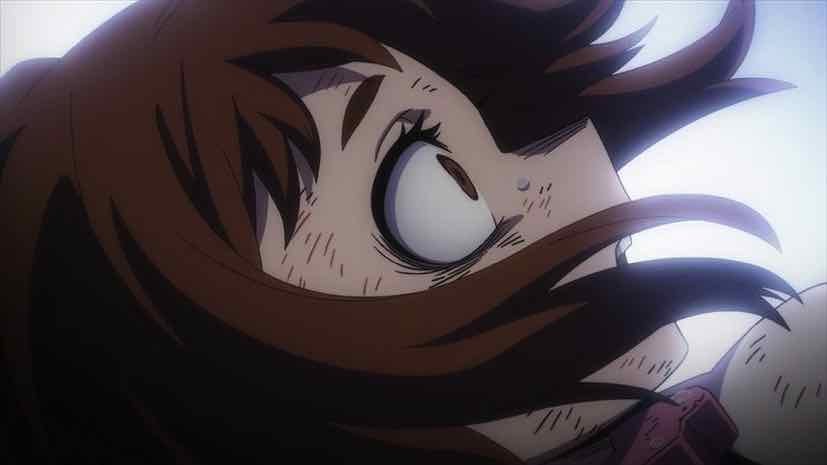
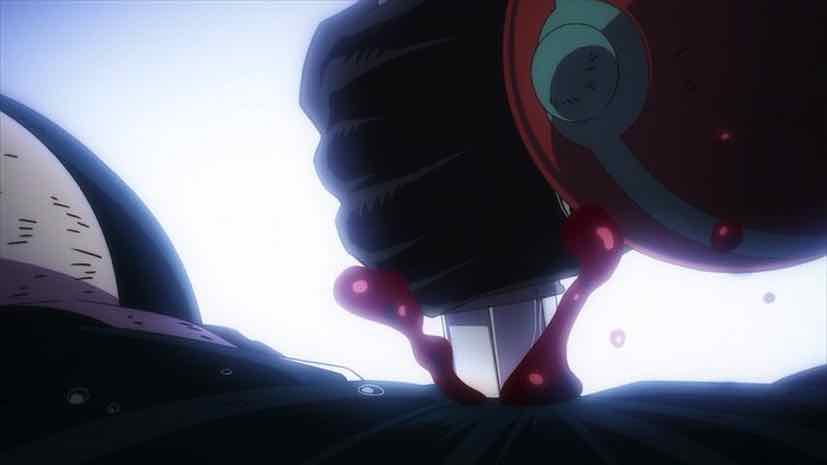
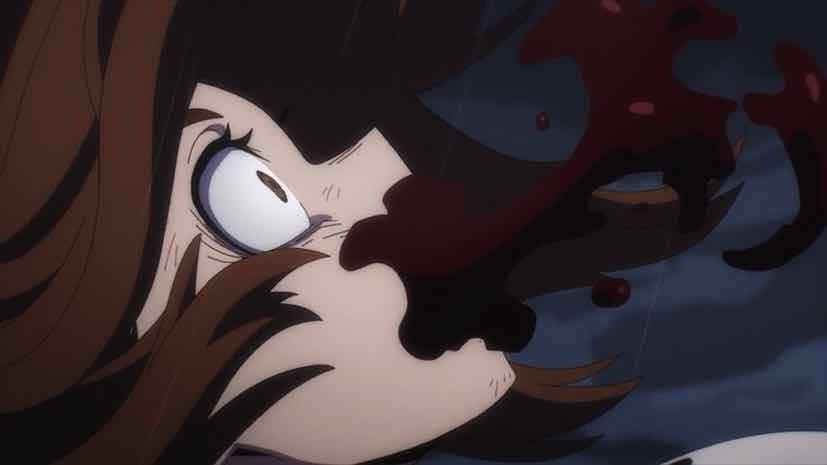
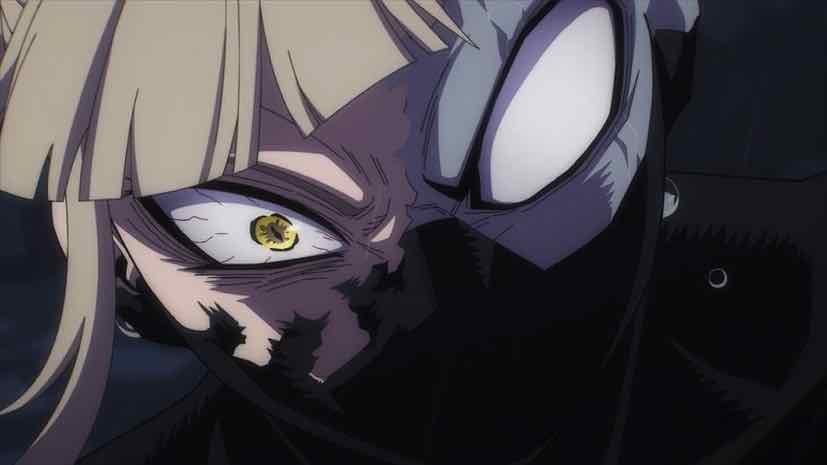
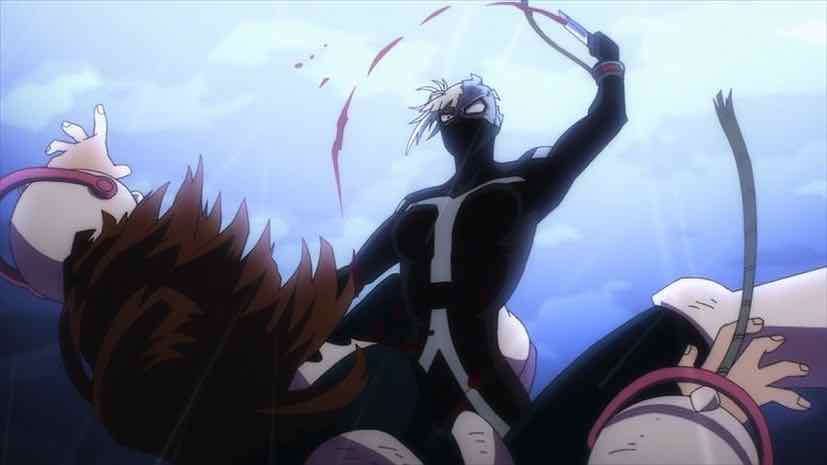
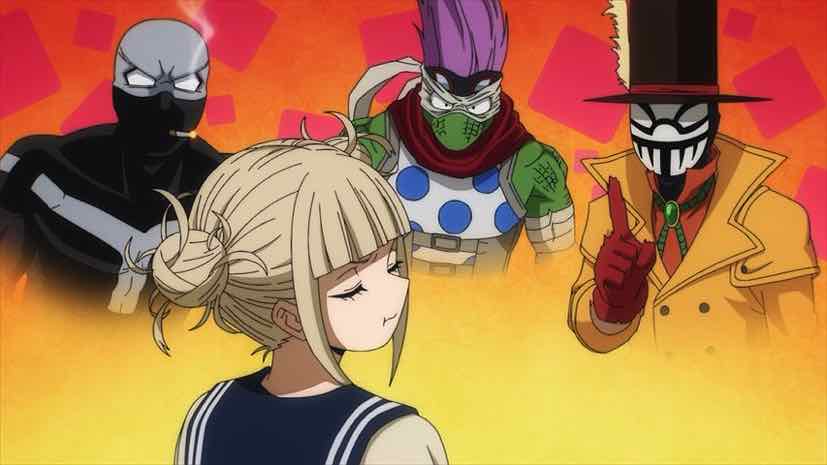
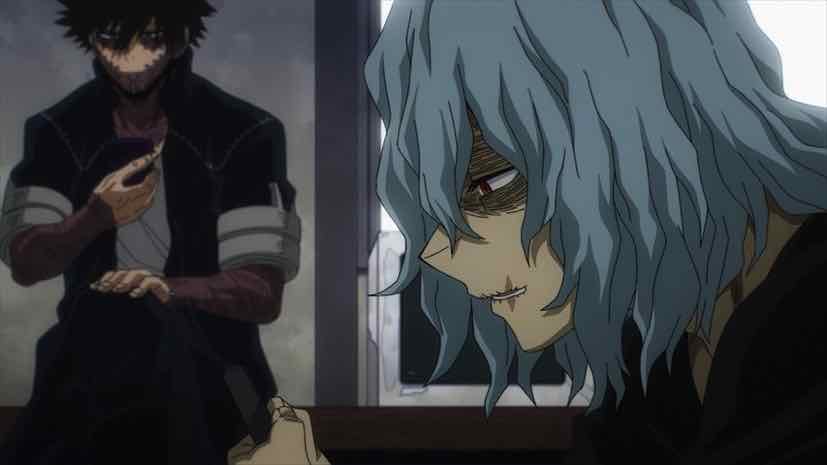
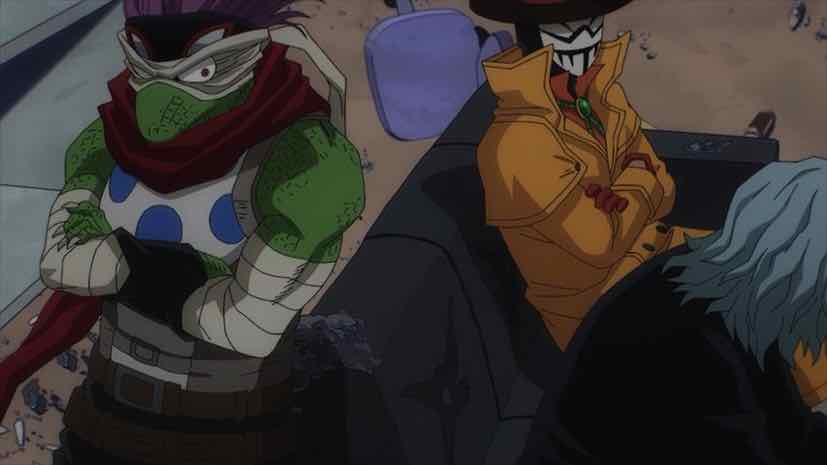
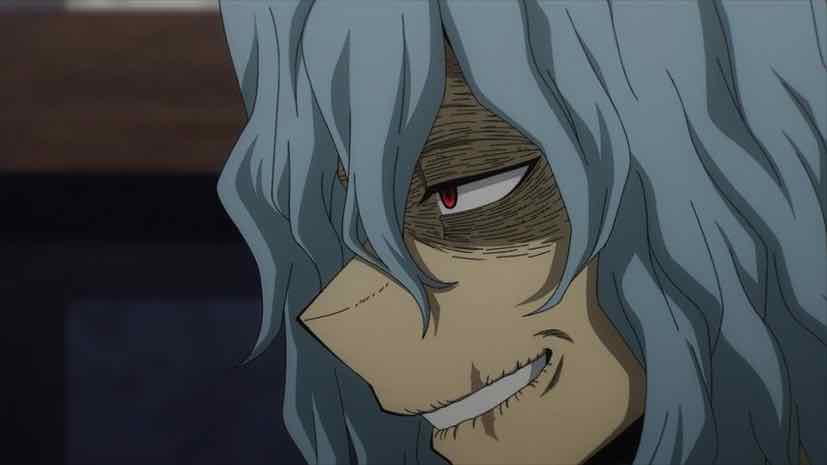
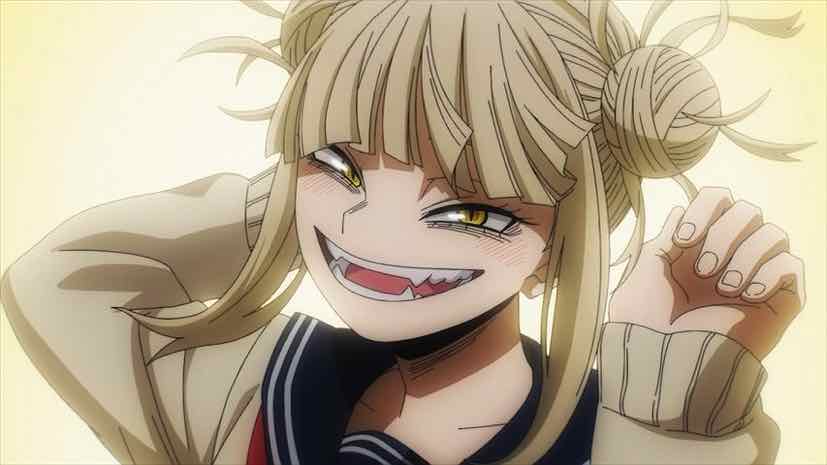
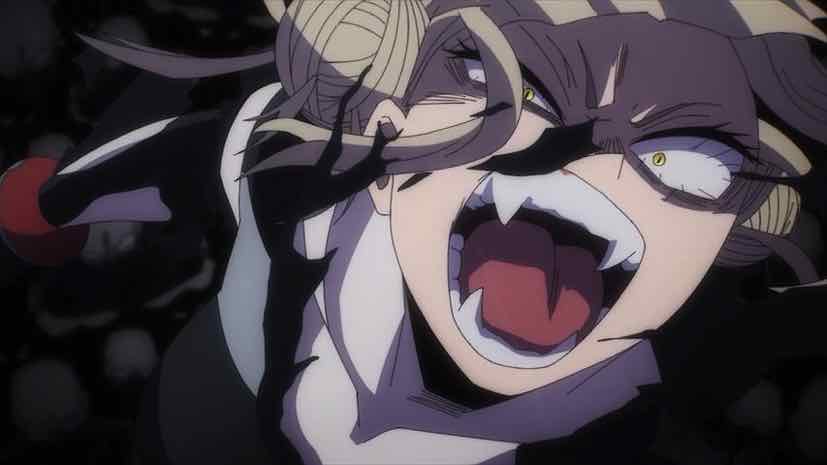
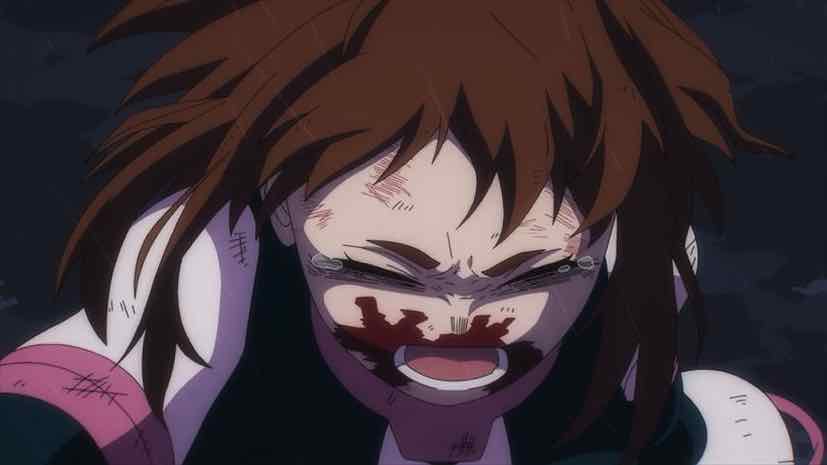
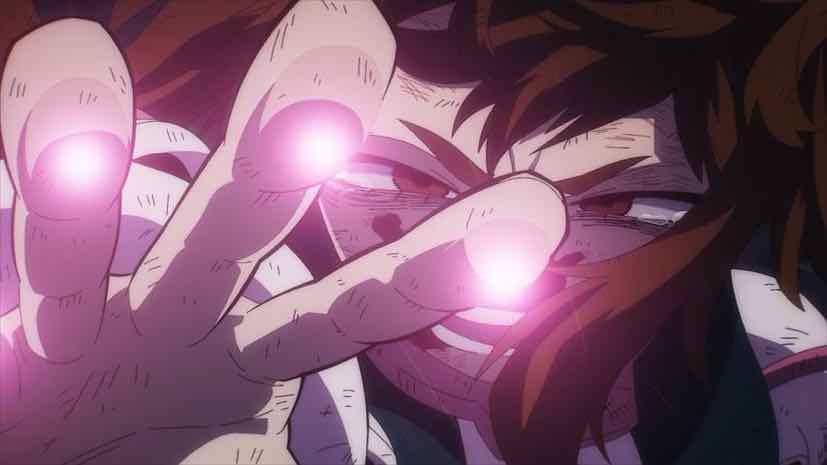
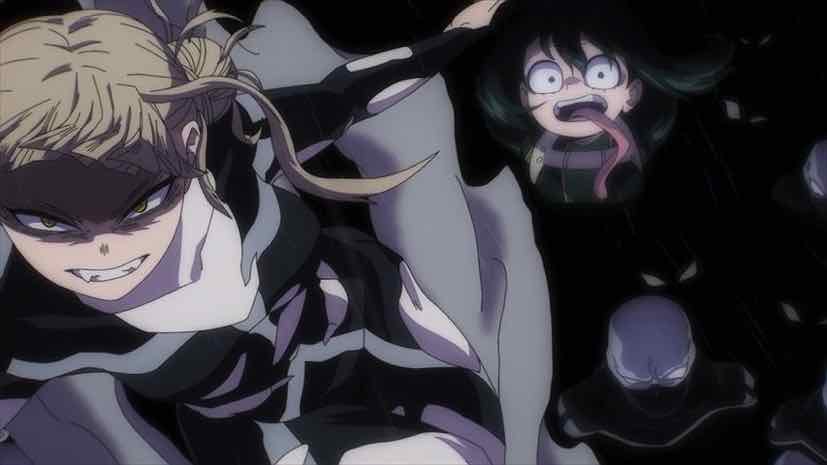
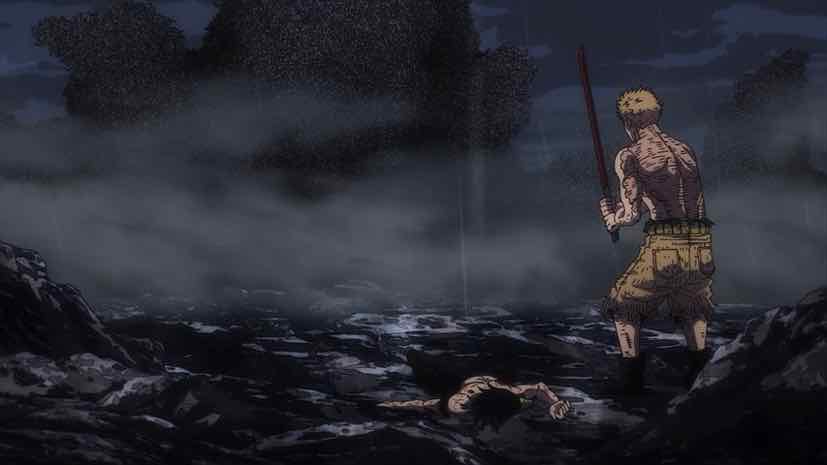
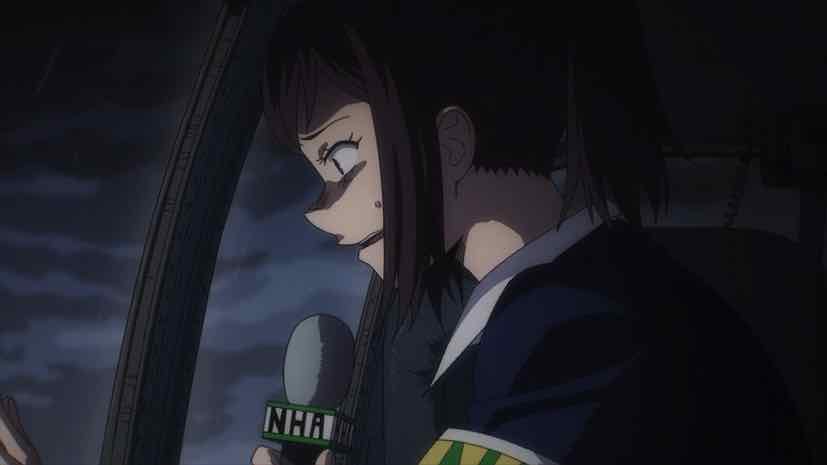

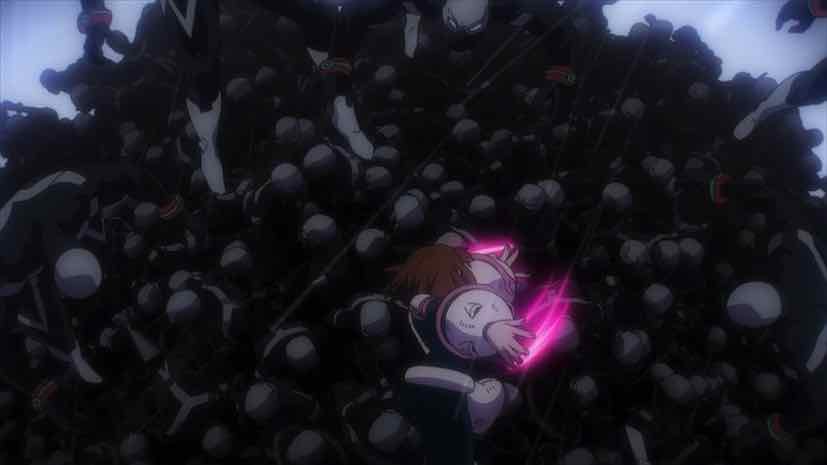
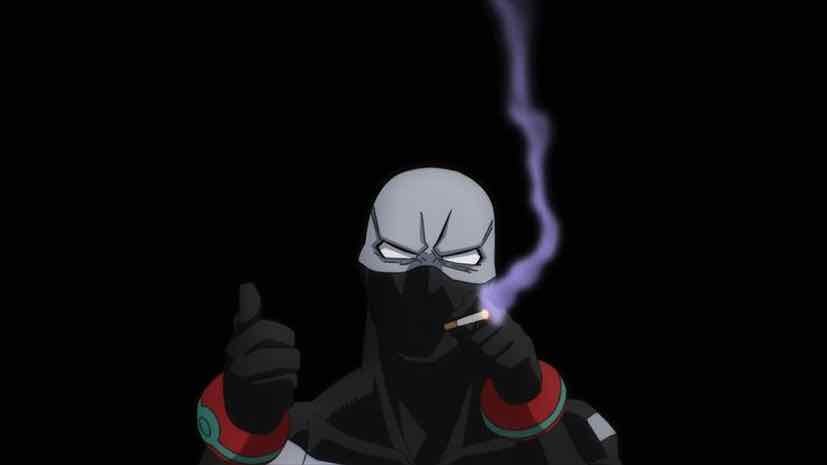
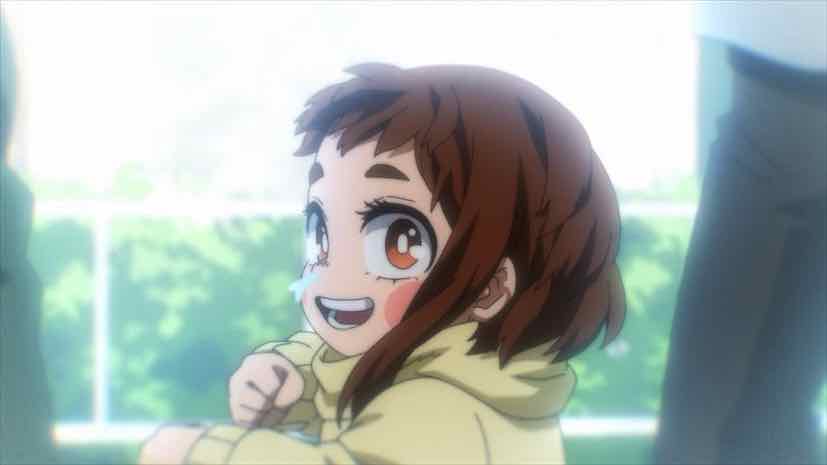
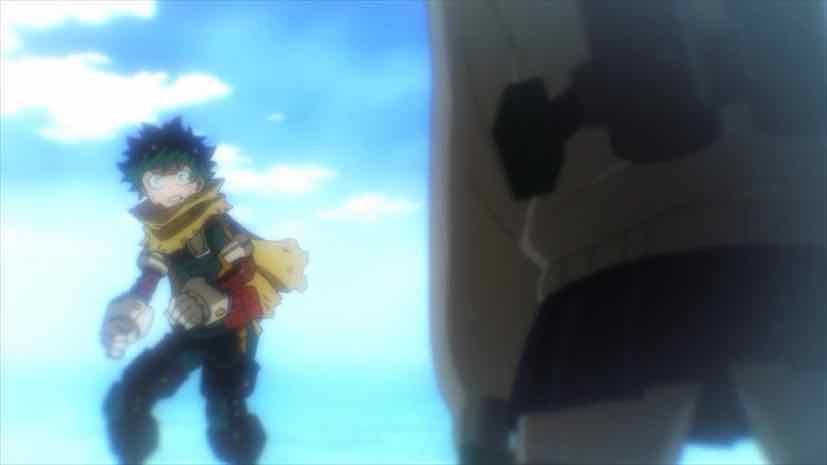
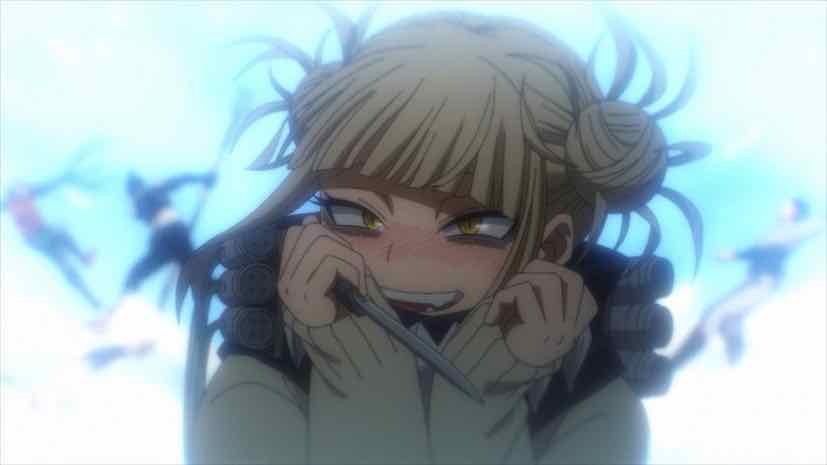
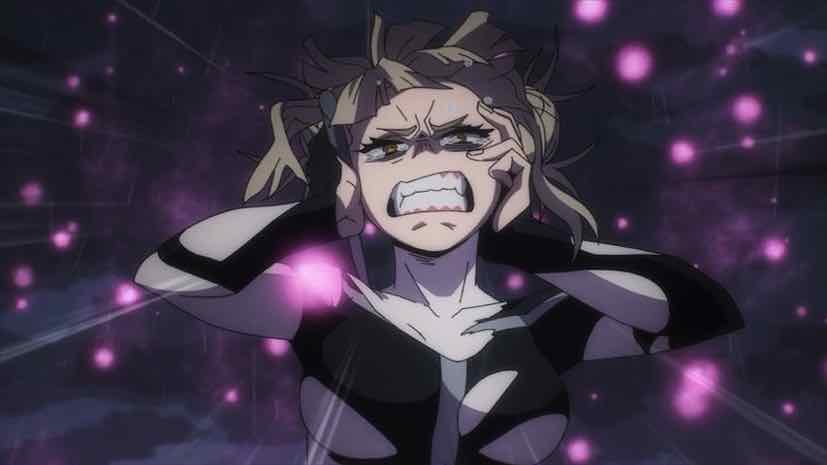
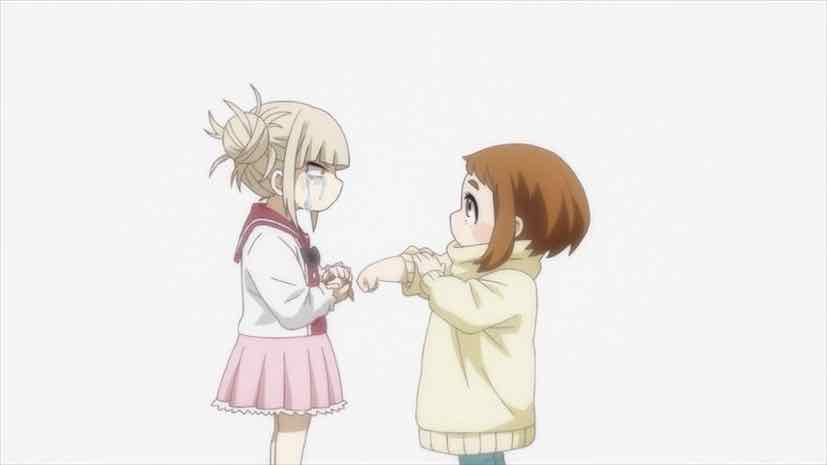
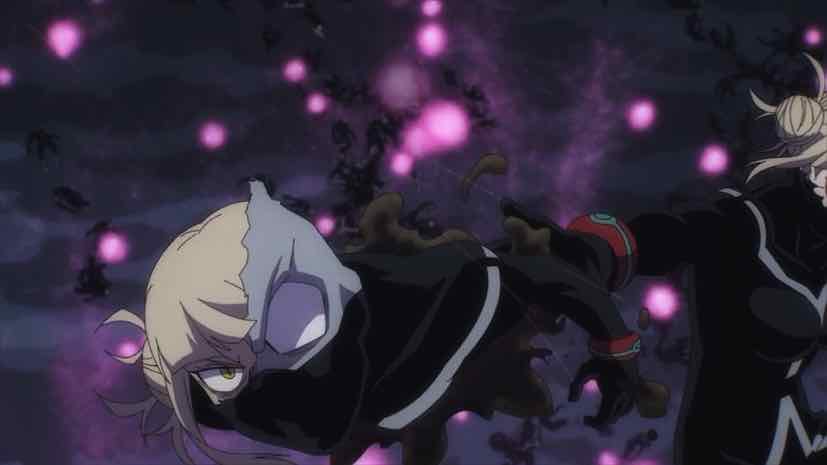
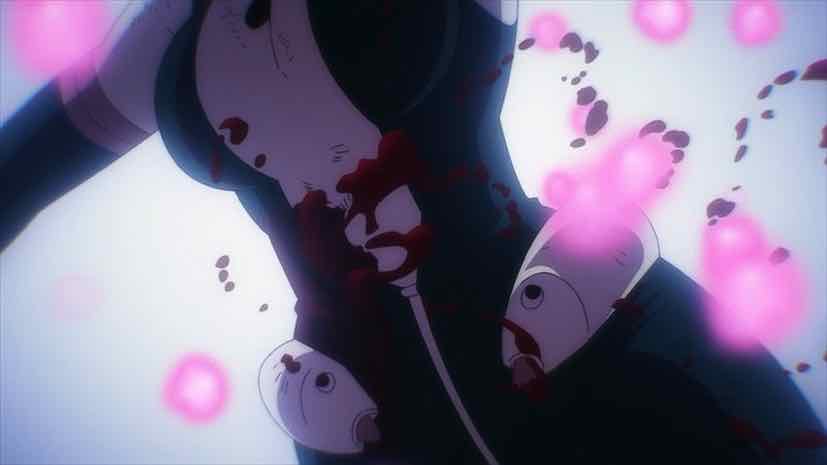
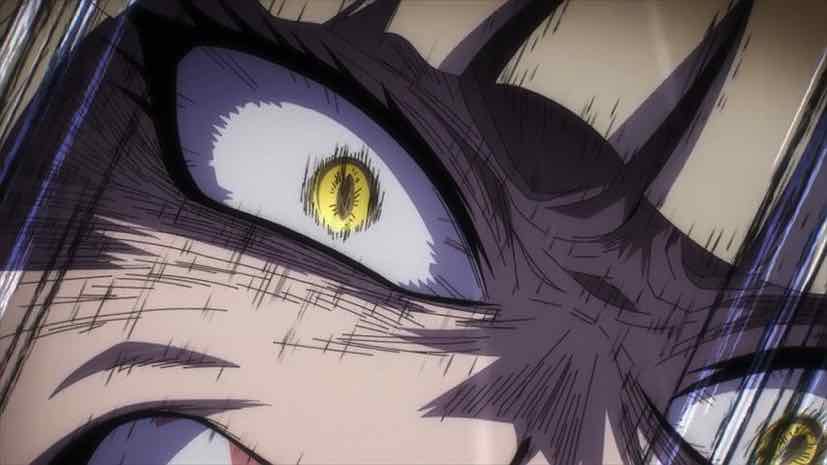
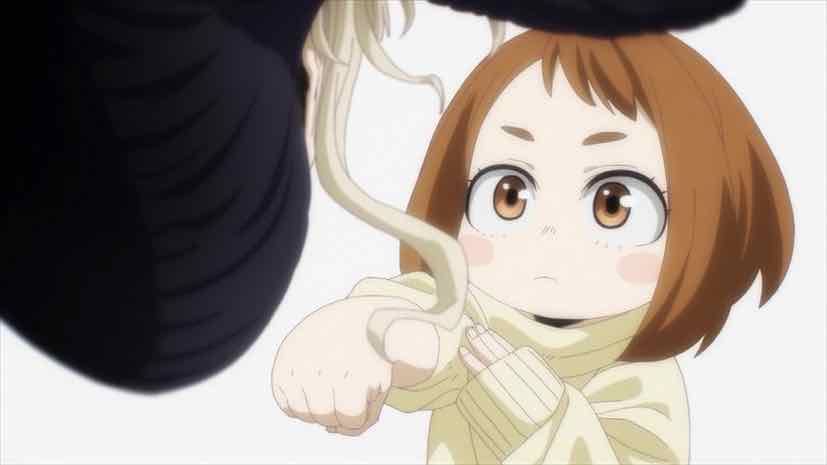
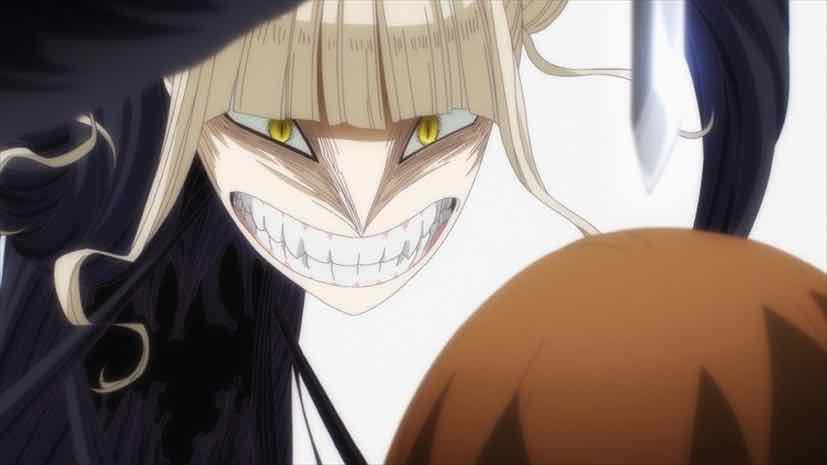
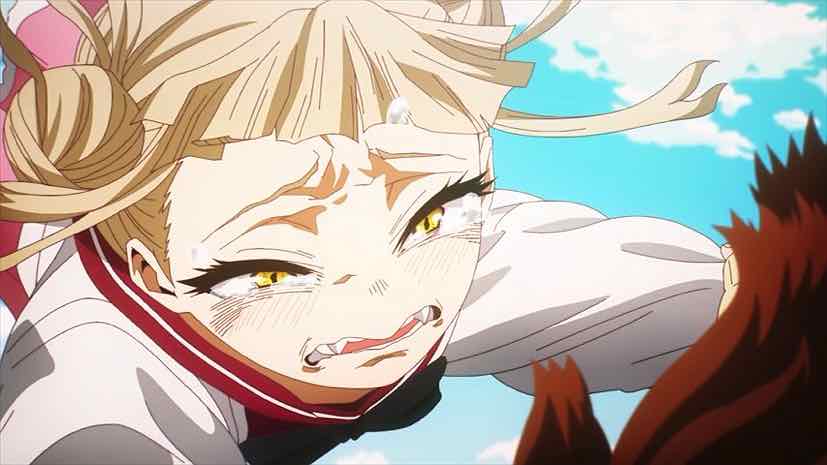
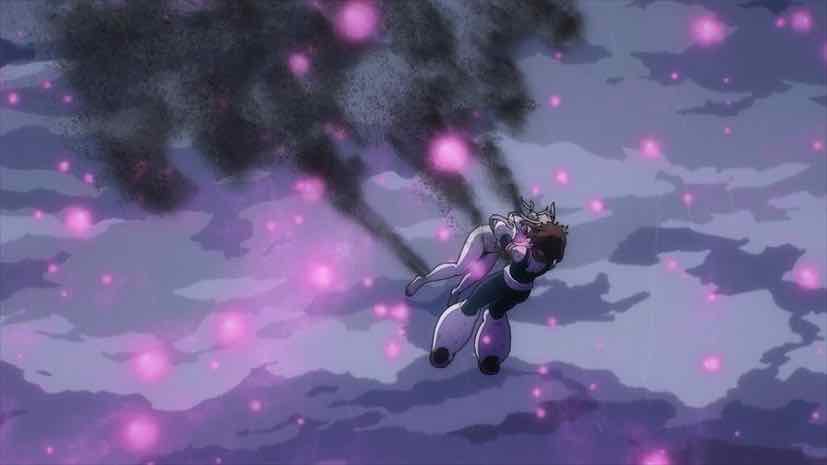
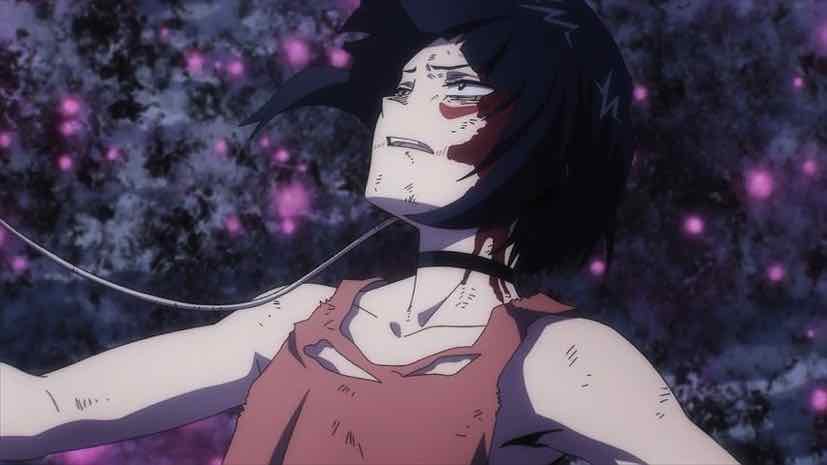
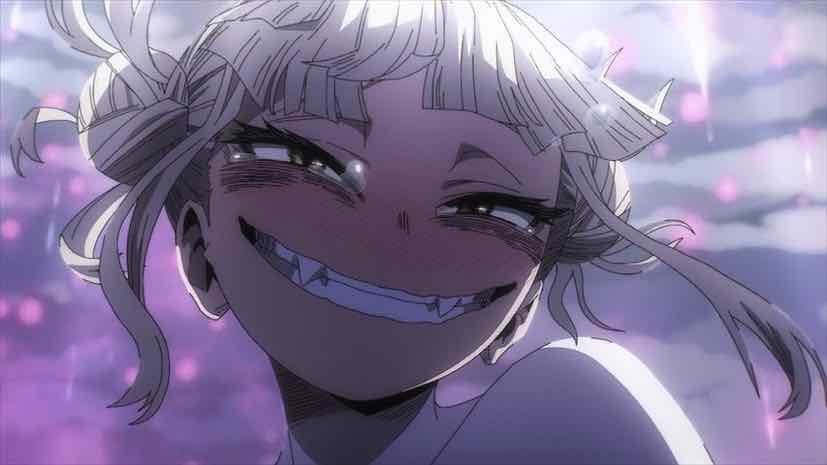
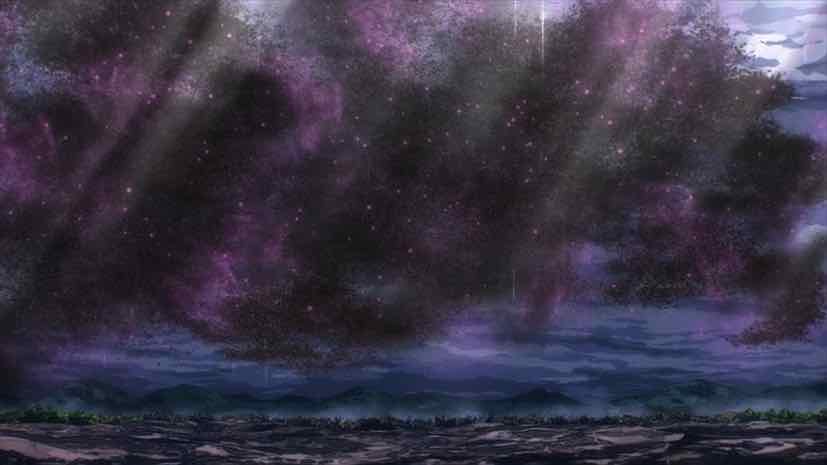

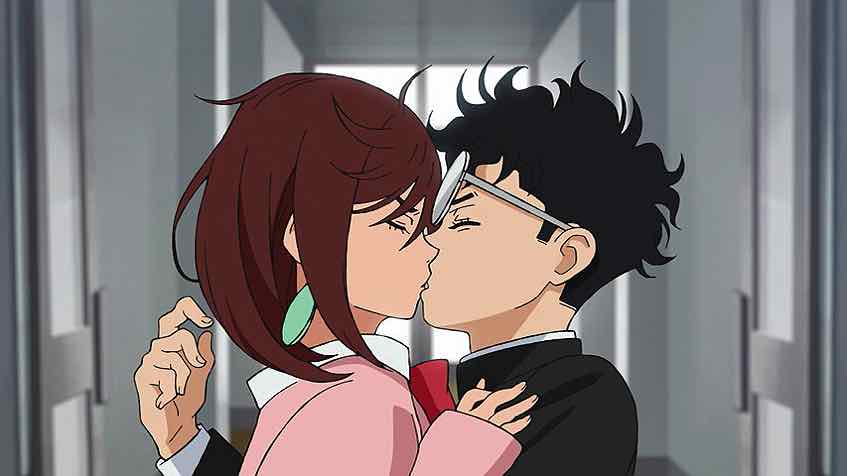
Nadavu
October 8, 2024 at 4:21 amMy lord, so much anime, I’m still trying to catch up with Saturday. At least I don’t have to blog about it!
Interesting how there aren’t any comments. This has been a trend for BnHA this season. I guess there’s not much to say other than “sasuga”?
Anyways, it’s Froppy who says that bit about how heroes follow rules and villains break them. It harkens back to how she was against some of class A going to save Bakugo or fight Stain or something way way back, against what they were told to do.
Guardian Enzo
October 8, 2024 at 7:20 amDeclining comments has been a staple of HeroAca for a while now. Sad, but it is what it is.